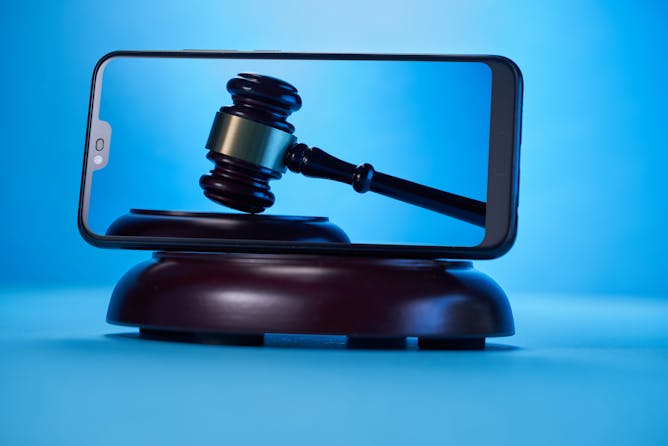|
If you’ve wondered why there aren’t legal guardrails for social media sites like Facebook and Twitter, you’re not alone. From the proliferation of hate speech and misinformation online to data privacy concerns, controversies about how these companies operate have sparked growing calls for regulation.
But how should government regulate such a novel and fast-changing industry? Some observers compare social media outlets to public utilities, which are subject to clear rules stating how much they can charge and how to treat customers. But Ted Kury, an economist and director of energy studies at the University of Florida’s Public Utility Research Center, says pipelines are a better model. “Like these networks, social media carries a commodity – here it’s information, instead of electricity, oil or gas,” Kury writes. It’s up to Congress to figure out how to make these outlets deliver it safely and fairly.
Also today:
|

Is the law coming for Twitter, Meta and other social media outlets?
new look casting/iStock via Getty Images
Theodore J. Kury, University of Florida
The US government regulates many industries, but social media companies don’t neatly fit existing regulatory templates. Systems that deliver energy may be the closest analog.
|
Arts + Culture
|
-
Troy Bickham, Texas A&M University
Evergreens have long served as symbols of life during the bleakness of winter. But Queen Victoria spurred the tradition that has become a global phenomenon.
|
|
Ethics + Religion
|
-
Rodolfo Galvan Estrada III, Vanguard University
The idea of virgin birth has been part of Christianity since the start, but its significance has shifted over time.
|
|
Health + Medicine
|
-
Xiaofan Lei, University of Minnesota
Stuttering is a complex neurodevelopmental disorder that affects about 1 in 100 people across the world. Yet the precise biological pathways that underlie stuttering are not well understood.
|
|
Politics + Society
|
-
Sara J. Brenneis, Amherst College
Spain has long avoided addressing the fact that tens of thousands of Spaniards were victims of Nazis, who collaborated with Spain’s former dictator, Francisco Franco.
|
|
Economy + Business
|
-
Jay L. Zagorsky, Boston University
Offers of interest-free loans may sound appealing, but there are many risks as well.
-
Joonha Kim, Rice University; Mark Finley, Rice University
A new study shows what it would mean for Europe and China, and why the US might not be too excited about the idea.
-
Salva Duran-Nebreda, Consejo Superior de Investigaciones Científicas (CSIC); Michael J. O'Brien, Texas A&M University-San Antonio; R. Alexander Bentley, University of Tennessee; Sergi Valverde, Consejo Superior de Investigaciones Científicas (CSIC)
Is imitation the sincerest form of flattery? Maybe. When good ideas prosper, so do replicas, diluting the power of original thinking.
|
|